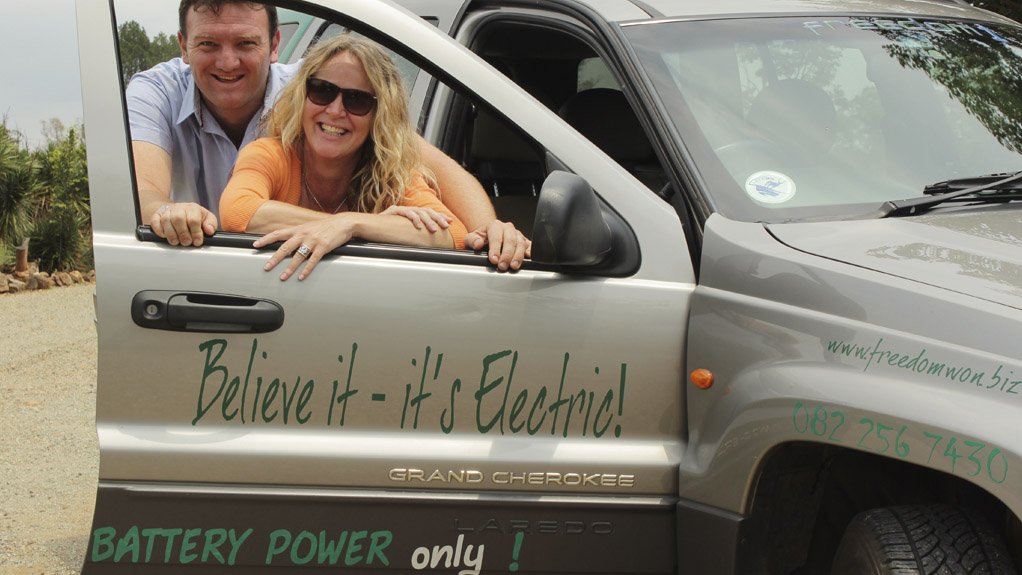The decreasing cost of energy storage solutions presents many opportunities for South Africa to manage the key issue of localised peak load power generation more efficiently, says green energy solutions provider Freedom Won cofounder and director Antony English.
He explains that, internationally, power utilities are increasingly employing large-scale chemical-based energy storage solutions, such as lithium-ion batteries, to manage peak demand and geographically specific grid transmission capacity constraints. With the acquisition cost of energy storage technology significantly decreasing in the past year, this option is only becoming more appealing.
“Solar in particular, but also wind energy, does not generate power when it is most needed. Renewable-energy sources such as these should be leveraged much harder in South Africa to solve the peak demand problem and this can be done by incorporating energy storage on a more extensive scale.”
Particularly compelling is the benefit that storage can offer to the energy sector by virtue of the low life cycle cost of operating such systems, compared with the massive costs associated with upgrading generation and transmission for handling peak loads, both nationally and on a local municipal level.
“Energy storage used in strategically located peaking plants will also enable transmission infrastructure spend to be focused on presently unserved or underserved areas of South Africa, as opposed to spending limited resources on costly upgrades in overstressed sections of the grid.”
English notes that a challenge for large-scale implementation of energy storage is, however, instilling an awareness and acceptance that battery technology need not be encumbered by the poor performance of obsolete technologies such as lead acid batteries, but instead that game changing and unparalleled performance is on offer.
“The purchase price of a lithium-ion battery requires a long-term view regarding the return on investment, which requires forward thinking and strategic intent – traits that need to be developed further in the African context. State and institutional support for funding energy storage projects also need to be enhanced.”
Despite this, English is confident that, in the long term, energy storage will become ubiquitous in both small- and large-scale energy applications, driven mostly by the economic benefits it offers, and even without State support.
The new possibilities provided by the lower cost of robust storage technologies will also see it being used extensively in grid connected peak demand sharing and in large-scale renewable energy plants, for enhancing the time-based availability of renewable energy.
“Demand will continue growing at an ever-increasing pace for energy storage in residential right through to large industrial users, owing to the benefits of stability of supply and lower overall energy cost – among others.”
English will be leveraging his experience and expertise in lithium energy storage as a panellist on the energy storage panel discussion at this year’s POWER-GEN & DistribuTECH Africa, held at the Sandton Convention Centre from July 18 to 20.
Edited by: Zandile Mavuso
Creamer Media Senior Deputy Editor: Features
EMAIL THIS ARTICLE SAVE THIS ARTICLE
ARTICLE ENQUIRY
To subscribe email subscriptions@creamermedia.co.za or click here
To advertise email advertising@creamermedia.co.za or click here













